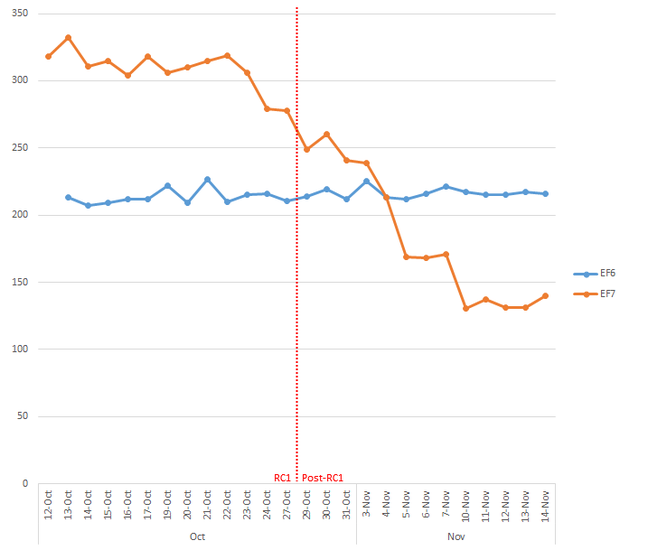This article is more than 1 year old
Why Microsoft's .NET Core is the future of its development platform
Microsoft is betting on open source fork of .NET Framework to draw cloud customers
How serious is Microsoft about .NET Core?
How serious is Microsoft about .NET Core? As far as one can tell, very serious – of course, it was very serious about the now-abandoned Silverlight browser plugin a few years back, so these things can change. At dotnetConf, Program Manager Richard Lander said that 100-200 people work on .NET Core, excluding related teams such as those for Visual Studio and ASP.NET. It is a "very sizeable investment", he said.
Another clue came from Microsoft's Martin Woodward, the Executive Director of the .NET Foundation and (he said) its only full-time staff member was present. He spoke at the recent Future Decoded event in London, and was available at the exhibition there. Talking about the relationship between .NET Framework and .NET Core, he said that "new feature work mostly happens in .NET Core now," and that code is then pulled into the .NET Framework in order to add support there.
At Connect, Microsoft announced that .NET Core is now at Release Candidate stage, complete with a "go-live" licence so that production applications are supported. Should you jump?
Probably not yet. A snag with .NET Core is that it's cut-down relative to the full .NET Framework, and existing applications are unlikely to run without considerable work. ".NET Core v1 is unusable for many apps," said developer Frans Bouma on Twitter. If your application uses a DataTable, for example, part of the ADO.NET library, it will not work in .NET Core as it has not been ported.
Microsoft has ported its Entity Framework Object-Relational database library to .NET Core, but some developers avoid this for performance reasons. Entity Framework 7 (EF7) RC1 has recently been released, and in the announcement Microsoft's Rowan Miller notes that "because of the fundamental changes in EF7 we do not recommend attempting to move an EF6.x application to EF7 at this stage".
EF7 is also slower than EF6 in this release, though Miller said that it will be faster by the time it is fully released.

Entity Framework 7 performance versus the previous version. The red line shows that EF7 is slower in RC1.
There is a huge existing ecosystem built on the .NET Framework, and porting these to .NET Core is not trivial. Given that the .NET Framework is still there, it is not certain that developers will want to invest the time and energy in migrating.
How is performance for .NET Core versus .NET Framework overall? The official line is that it is similar, though with .NET Core is optimised for concurrency and should perform better in some scenarios, just as the mature .NET Framework will do better in others.
Despite some difficult issues, this is a bold initiative from Microsoft and one that fits neatly with DevOps and cloud computing. It is also clear that the company sees this as the future of the .NET platform – note that it is for the UWP as well as server applications – so those working with .NET should pay attention, even if it is too early to use for actual work. ®
